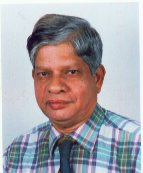Take the ultimate intelligence test - life - 27 October 2010 - New Scientist Click here to go straight to the ultimate intelligence test
You might think it's obvious that one person is smarter than another.
But there are few more controversial areas of science than the study of intelligence and, in reality, there's not even agreement among researchers about what this word actually means.
Thursday, October 28, 2010
Tuesday, October 26, 2010
Super-futuristic cars will be 'grown from seeds' rather than built - Yahoo! India News
Super-futuristic cars will be 'grown from seeds' rather than built - Yahoo! India News London, Oct 26 (ANI): Some of the world's most famous car manufacturers have come up with futuristic designs for vehicles that would be "grown" rather than built and which will be powered by compressed air.
Saturday, October 16, 2010
New liquid crystals could improve digital displays
New liquid crystals could improve digital displays Chemists at Vanderbilt University, Nashville, Tenn., created a new class of liquid crystals with unique electrical properties that could improve the performance of digital displays used on everything from digital watches to flat panel televisions.
Thursday, October 7, 2010
First frictionless superfluid created - physics-math - 07 October 2010 - New Scientist
First frictionless superfluid created - physics-math - 07 October 2010 - New Scientist Superfluidity is a bizarre consequence of quantum mechanics. Cool helium atoms close to absolute zero and they start behaving as a single quantum object rather than a group of individual atoms. At this temperature, the friction that normally exists between atoms, and between atoms and other objects, vanishes, creating what is known as a superfluid. Robert McKellar of the National Research Council of Canada in Ottawa and colleagues turned to hydrogen, which exists as pairs of atoms. The team created a compressed mixture of hydrogen and carbon dioxide gas and shot it through a nozzle at supersonic speeds. Once released, the molecules spread apart, cooling and arranging themselves so that each CO2 molecule sat at the centre of a cluster of up to 20 hydrogens.
Monday, October 4, 2010
Robert Edwards Wins Nobel Prize in Medicine or Physiology for Pioneering In Vitro Fertilization [Update]: Scientific American
Robert Edwards Wins Nobel Prize in Medicine or Physiology for Pioneering In Vitro Fertilization [Update]: Scientific American Robert Edwards has won the 2010 Nobel Prize in Physiology or Medicine for his work to develop in vitro fertilization (IVF), the Nobel committee announced Monday. The procedure allows a human egg to be fertilized outside of the body and then implanted in a woman's; it has been used as a treatment for infertility for more than three decades.
Subscribe to:
Posts (Atom)




